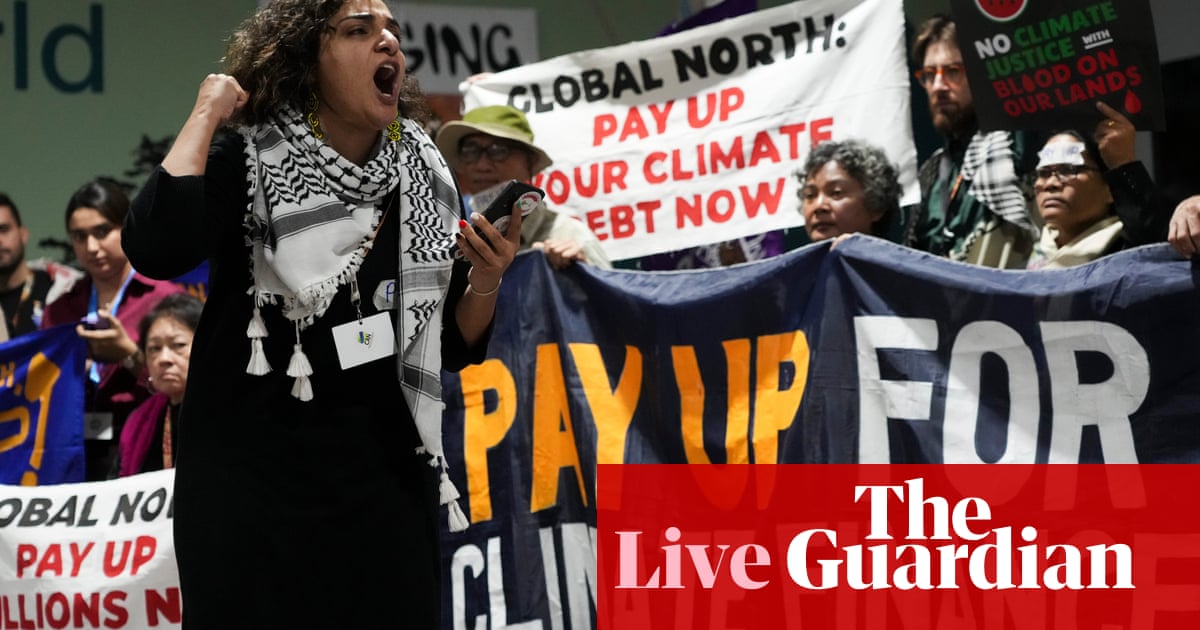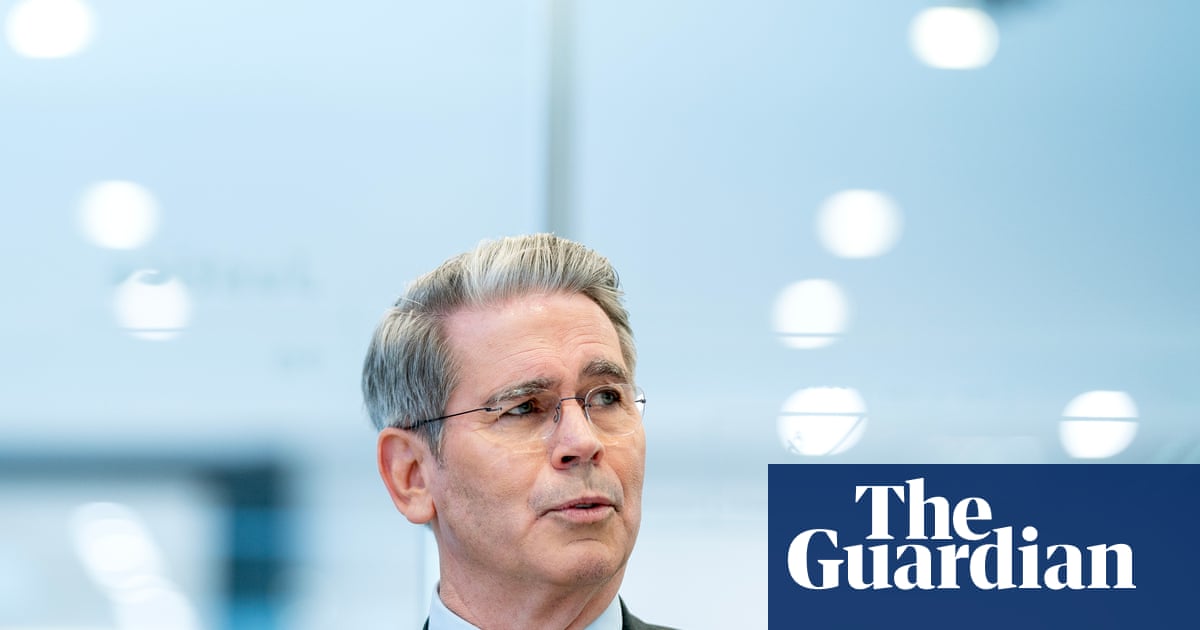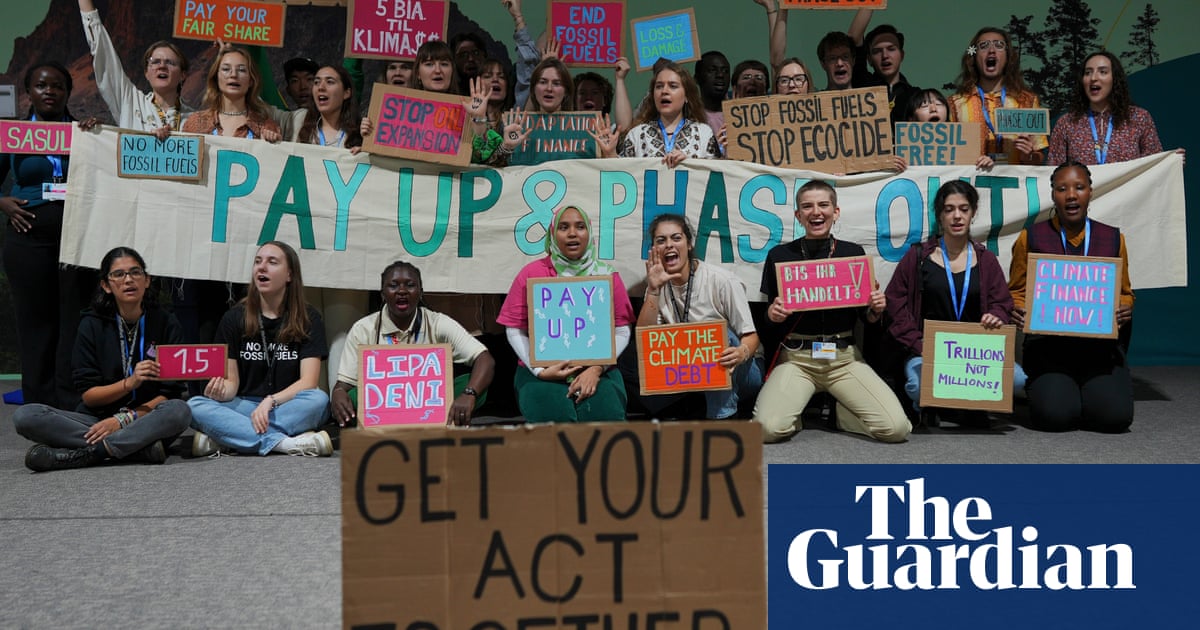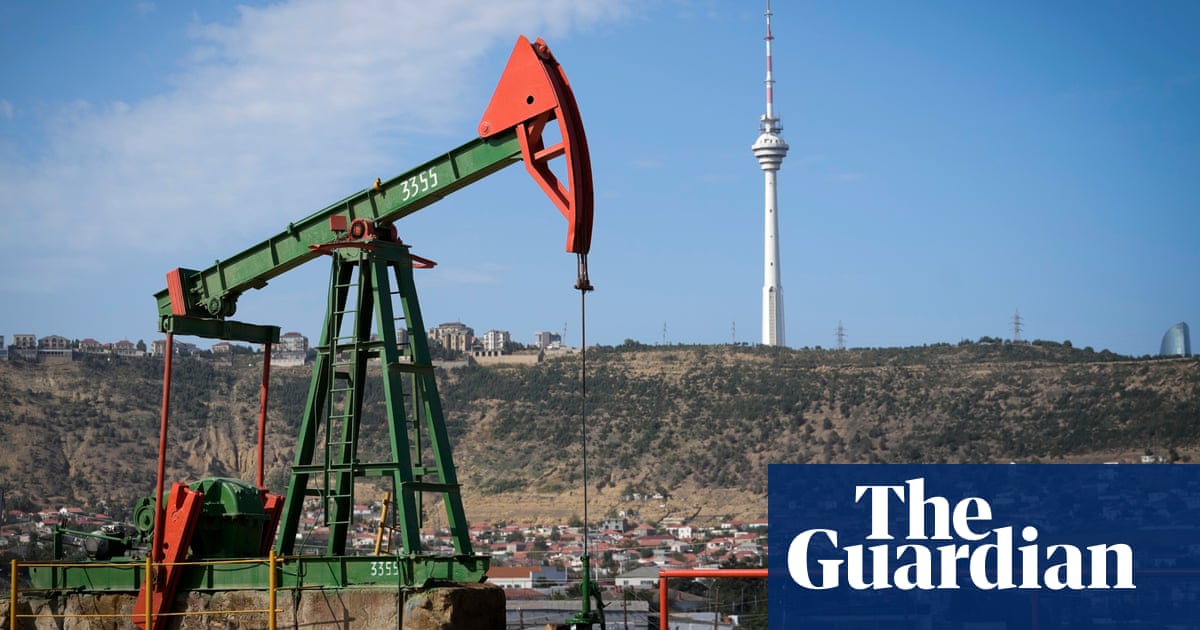Greta Thunberg: People in power ‘about to agree to a death sentence’

Damian Carrington
The worldâs most famous climate campaigner, Greta Thunberg, does not attend Cops these days, and her post on X about Cop29 shows why. She says Cop29 is failing and it âup to us as a global collective to take the action we so desperately needâ.
As the COP29 climate meeting is reaching its end, it should not come as a surprise that yet another COP is failing. The current draft is a complete disaster. But even if our expectations are close to non-existent, we must never ever find ourselves reacting to these continuous betrayals with anything but rage.
The people in power are yet again about to agree to a death sentence to the countless people whose lives have been or will be ruined by the climate crisis. The current text is full of false solutions and empty promises. The money from the Global North countries needed to pay back their climate debt is still nowhere to be seen.
Those in power are worsening the destabilisation and destruction of our life supporting ecosystems. We are on track to experience the hottest year ever recorded, with the global greenhouse gases reaching an all time high just last year.
The COP processes arenât just failing us, they are part of a larger system built on injustice and designed to sacrifice current and future generations for the opportunity of a few to keep making unimaginable profits and continue to exploit planet and people.
With every negotiation, with every speech made by a world leader and with every agreement they sign, it becomes clear that it is up to us as a global collective to take the action we so desperately need and show where the leadership truly lies. They are not going to do it for us, as this COP29 yet again proves.
Key events
Marching in silence with their arms crossed high, activists from around the world protested the draft deal at the Cop29 venue last night.
âPay up or shut up!â the campaign group Demand Climate Justice said in a post on social media.
Safaâ Al Jayoussi from Oxfam described it as a âshameful failure of leadershipâ.
âThe Cop29 Presidencyâs top-down âtake-it-or-leave-itâ approach has sidelined progressive voices,â she said.
Activists hold a silent protest against a draft agreement. Photograph: Murad Sezer/Reuters
Poor countries reacted with anger to a draft $250bn climate finance target on Friday, dismissing it as a âjokeâ. It prompted a diplomatic effort behind the scenes to increase the offer from rich countries. The Guardian understands they agreed to bump the offer to $300bn.
The new figure would still fall well short of what is being demanded by poor countries, who have done little to change the climate but suffer the brunt of violent weather.
Dharna Noor
As negotiators hash out a final deal at Cop29, Palestinian officials and activists are reminding attendees about another crisis: Israelâs siege of Gaza.
âThe Cop [meetings] are very keen to protect the environment, but for whom?â said Ahmed Abu Thaher, director of projects and international relations at Palestineâs Environment Quality Authority, who had travelled to Cop29 from Ramallah. âIf you are killing the people there, for whom are you keen to protect the environment and to minimise the effects of climate change?â
Activists are calling the war on Gaza an âecocideâ and demanding countries stop sending fuel to Israel.
For more, check out my story from this morning.
Rich countries agree to stump up more cash – sources
Negotiators have told our reporters on-the-ground that rich countries have agreed to up their offer on the crucial issue of climate finance. Read the full story from Adam Morton, Fiona Harvey and the rest of the team here.
Major rich countries at UN climate talks in Azerbaijan have agreed to lift a global financial offer to help developing nations tackle the climate crisis to $300bn a year, as ministers met through the night in a bid to salvage a deal.
The Guardian understands the Azeri hosts brokered a lengthy closed-door meeting with a small group of ministers and delegation heads, including China, the EU, Saudi Arabia, Brazil, the UK, US and Australia, on key areas of dispute on climate finance and the transition away from fossil fuels.
It came as the Cop29 summit in Baku, which had been due to finish at 6pm Friday, dragged into Saturday morning. A plenary session had been planned for 10am but did not eventuate.
The developing world reacted with anger to a draft $250bn climate finance target on Friday, dismissing it as a âjokeâ and far below the amount that is needed to help the poor shift to a low-carbon economy and adapt to the impacts of extreme weather. It prompted a diplomatic effort behind the scenes to increase the offer from developed nations.
Multiple sources said the EU and several members of the umbrella group of countries including the UK, US and Australia had indicated they could go to $300bn in exchange for other changes to a draft text released on Friday.
The Guardian understands that the UN secretary general, António Guterres, was ringing round capitals to push for a higher figure. Japan, Switzerland and New Zealand were understood to be among the countries resistant to the $300bn figure late on Friday.
A $300bn offer would still fall well short of what developing countries say is necessary, and would likely still draw sharp criticism if included in an updated text expected later on Saturday. But with some ministers booked to leave Baku in the hours ahead, countries face a decision on what they are prepared to accept.
Several ministers from rich nations have argued that a deal may be easier now than next year, when Donald Trump will be US president and right-wing governments could be returned at elections in several countries, including Germany and Canada, and they do not want to make a commitment they cannot meet.
Claudio Angelo, from Observatório do Clima in Brazil, said rich countries had âclearly arrived to ditch their obligationsâ. âAfter three years of negotiations the first time we ever saw quantum in the text was yesterday,â he said.
He said $300bn in grant funding was âway, way belowâ what developing countries needed. âRemember, many of them are already in deep debt,â he said. âTo have climate finance as the current text proposes will only entrap those countries more.â
According to the draft text of a deal circulated on Friday, developing countries would receive at least $1.3tn a year in climate finance by 2035, which is in line with the demands most submitted in advance of this two-week conference.
But poor nations wanted much more of that headline finance to come directly from rich countries, preferably in the form of grants rather than loans. They said the offer of $250bn coming from rich countries, with few safeguards over how much would come without strings attached, was much too little.
The Organisation of Petroleum Exporting Countries (OPEC) went to Moscow to talk to Russia about oil yesterday, as delegates in neighbouring Azerbaijan struggled to bring the climate conference to a close. The dialogue highlighted energy security and âthe risk of underinvestmentâ, according to OPEC.
The group posted a video on social media last night, set to dramatic orchestral strings, with pictures of OPECâs secretary-general Haitham Al Ghais and Russiaâs deputy prime minister Alexander Novak at the 9th meeting of the OPEC-Russia Energy Dialogue. It said the two groups had examined oil market developments across short, medium and long-term horizons, and that âkey topics included the ongoing climate change negotiations at Cop29.â
Russia, which is not a member of the 12-member group but is part of the larger OPEC+ alliance that pumps half the worldâs oil, said it will continue to be a âkey playerâ in the oil market.
Earlier this week, Al Ghais echoed Azerbaijani President Ilham Aliyevâs comments in praise of oil and gas.
âThey are indeed a gift of God,â he told the Cop29 summit on Wednesday.

Damian Carrington
Itâs looking like Cop29 may run way over time. The UN climate body which runs the talks with the host nation just told me: âWhile the schedule is subject to change due to ongoing negotiations, the final plenary is expected to begin in the early afternoon between 1pm and 3pm (Baku time).â
They are also planning to have food outlets open after 8pm this evening and into the early hours of Sunday.
The latest finishing Cop was in Madrid in 2019, as this chart from Carbon Brief shows â it finished at 1.55pm on the Sunday. All Cops are meant to end on Friday.
Greta Thunberg: People in power ‘about to agree to a death sentence’

Damian Carrington
The worldâs most famous climate campaigner, Greta Thunberg, does not attend Cops these days, and her post on X about Cop29 shows why. She says Cop29 is failing and it âup to us as a global collective to take the action we so desperately needâ.
As the COP29 climate meeting is reaching its end, it should not come as a surprise that yet another COP is failing. The current draft is a complete disaster. But even if our expectations are close to non-existent, we must never ever find ourselves reacting to these continuous betrayals with anything but rage.
The people in power are yet again about to agree to a death sentence to the countless people whose lives have been or will be ruined by the climate crisis. The current text is full of false solutions and empty promises. The money from the Global North countries needed to pay back their climate debt is still nowhere to be seen.
Those in power are worsening the destabilisation and destruction of our life supporting ecosystems. We are on track to experience the hottest year ever recorded, with the global greenhouse gases reaching an all time high just last year.
The COP processes arenât just failing us, they are part of a larger system built on injustice and designed to sacrifice current and future generations for the opportunity of a few to keep making unimaginable profits and continue to exploit planet and people.
With every negotiation, with every speech made by a world leader and with every agreement they sign, it becomes clear that it is up to us as a global collective to take the action we so desperately need and show where the leadership truly lies. They are not going to do it for us, as this COP29 yet again proves.

Patrick Greenfield
As we wait for signs of movement in the negotiations, the conference centre is a ghost town this morning. Gone are the crowds of delegates and rammed food halls. The organisers are busy dismantling pavilions and the network of tents built around the Olympics stadium here in Baku. Competition for food, water and toilet roll is a growing issue.
This morning, the New York Times ran a story about Singapore beer made from recycled toilet water on offer at Cop29. In a few hours, maybe that will start to seem appealing. Air conditioning units have been turned up to 30C in some areas, literally turning the heat up for negotiators.
Everything about the venue is telling those that remain to get on with it, reach a deal and leave. But at the time of writing, no time for a plenary is listed on the TV screens. We continue to wait.
As we wait for the new text to land itâs worth looking back at the closing summary from yesterday, when the conference should have ended.
Yesterdayâs closing summary:
-
Mary Robinson, the former president of Ireland and twice a UN climate envoy, said rich country budgets were stretched amid inflation, Covid and conflicts including Russiaâs war in Ukraine, and warned that poorer countries might have to compromise.
-
The UK government pledged £239m to tackle deforestation
-
In an unusual intervention, the UAE stepped in and warned that the world must stand behind a historic resolution made last year to âtransition away from fossil fuelsâ as the Saudis tried to block the language.
-
The draft text was published, but met a pretty hostile reception. It called for $1.3tn by 2035.
-
Civil society called it âan absolute embarrassmentâ
-
Few countries have spoken up so far, but their reactions have been mixed. The Australian climate change minister, Chris Bowen, has responded to the latest text from the presidency, describing it as a âgenuine attemptâ. But Amb Ali Mohamed, Kenyaâs Special Envoy for chair of the African Group of Negotiators called it as âtotally unacceptable and inadequate.â
Climate talks enter overtime

Patrick Greenfield
We are into overtime at Cop29 in Baku and we are still waiting for signs of compromise. It could be a very long Saturday in the Azeri capital, where a plenary is currently scheduled to take place at 10am local time.
The developing world reacted with anger to a draft $250bn climate finance target yesterday, dismissing it as a âjokeâ and far below the amount that is needed. Behind the scenes, a diplomatic effort is underway to increase the offering from rich nations to make sure the deal survives.
The Guardian understands that the UN secretary general is ringing round capitals to push for a higher figure. The EU is among those open to $300bn but Japan, Switzerland and New Zealand do not want to raise the offer, it is understood. Letâs see who budges, if anyone.
Among donor countries, there is anxiety about what Donald Trumpâs return to the US presidency will mean for climate finance, and they do not want to overcommit to a figure they cannot deliver. This, combined with the potential of right wing governments in France, Germany, Canada and elsewhere, means that things are in the balance in Baku.
Welcome to the Guardianâs live coverage of the Cop29 climate conference, Iâm Ajit Niranjan. After a fortnight of negotiations, talks overran well past the Friday evening deadline as countries negotiated over what should appear in the agreed text.
The key question is over climate finance: how much money should be provided to poorer countries by wealthier ones, and what form it should take.
We will be bringing you all the latest developments as they happen. You can also get in touch with us at [email protected].









